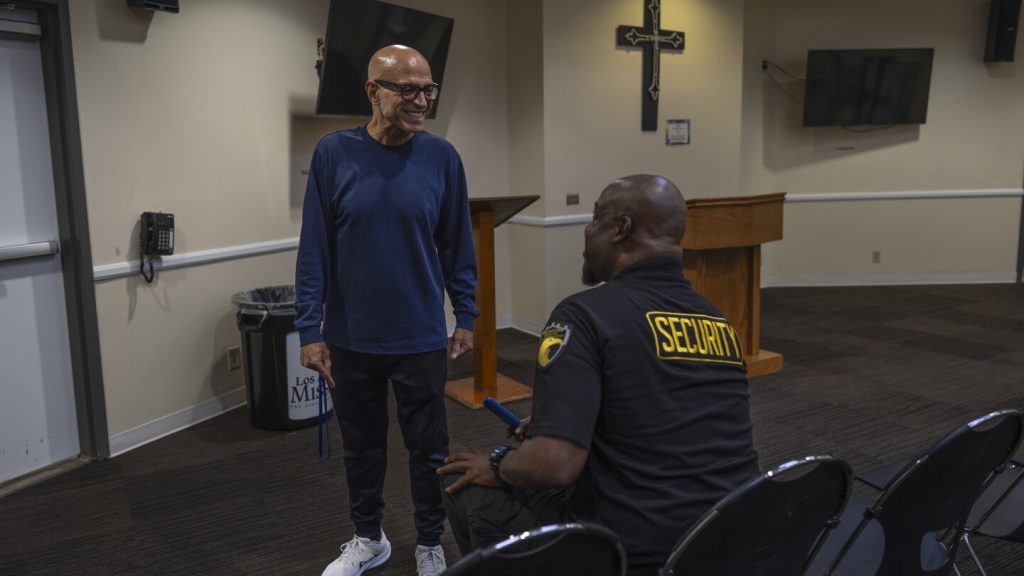Timothy Walker, a recovering cocaine addict, has found hope and faith through a Christian nonprofit in Los Angeles. After years of struggling with addiction, homelessness, and job loss, he completed a faith-based recovery program at the Los Angeles Mission and has been clean for nearly two years. Now, he has a job writing thank-you cards to donors and is considering exercising his right to vote for the first time in forty years.
Walker believes that having a Christian in the White House would bring a sense of morality, ethics, and love to the presidency. While both major-party nominees, Kamala Harris and Donald Trump, identify as Christian, Walker feels that a leader grounded in faith would prioritize the well-being of humanity over personal or business interests. Although he remains uncertain about his voting decision, he attributes his life transformation to his faith and hopes for positive change in the country’s leadership.
As an optimist, Walker believes in the power of God to help America, but he is also realistic about the deep divisions within the country. He acknowledges the presence of judgment, envy, racism, and sin that continue to plague society, making it challenging to foster unity and love among individuals. Despite these challenges, Walker remains hopeful that positive change is possible, even if it may not happen overnight.
Through his experiences at the Los Angeles Mission, Walker has found a sense of purpose and community. He engages in prayer, attends services, and participates in the mission’s programs to help others who are struggling with addiction and homelessness. Walker’s journey serves as a testament to the power of faith and community support in overcoming adversity and rebuilding a fulfilling life.
The Associated Press receives support from private foundations to enhance its coverage of elections and democracy, with a focus on providing insightful content to its audience. The AP is committed to delivering accurate and informative news stories, shedding light on individuals like Timothy Walker who have faced personal challenges and emerged stronger with the help of faith-based organizations.
In conclusion, Timothy Walker’s story exemplifies the transformative power of faith, resilience, and community support in overcoming addiction and rebuilding a life filled with hope and purpose. As he contemplates the possibility of casting his vote in the upcoming election, Walker’s journey serves as a reminder of the importance of faith and values in shaping individual beliefs and perspectives on leadership. Through his experiences at the Los Angeles Mission, Walker has found a sense of belonging and purpose, inspiring others to seek help and guidance in times of struggle.


